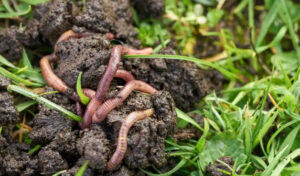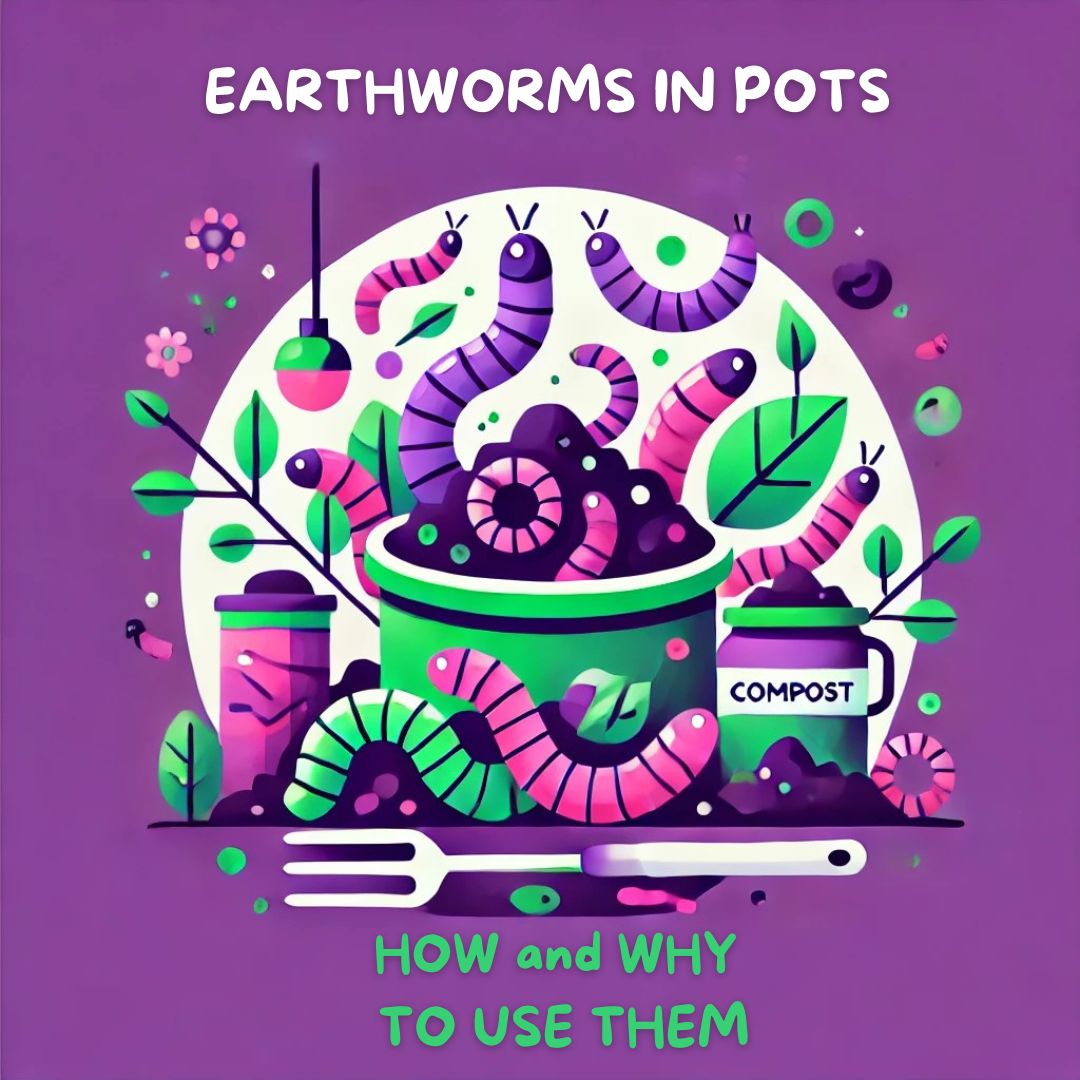Worms in Pots: How and Why to Use Them for a Rich and Fertile Soil

🌿 Introduction: Why Use Worms in Pots?
Earthworms in Pots How and Why to Use Them, If you are a gardening enthusiast, you probably know how crucial soil quality is for healthy plant growth. But did you know that worms can transform the substrate into a nutrient-rich fertilizer, improving the health of your potted plants? 🏡
Using worms in pots is a natural and eco-friendly technique that enhances organic fertilization, improves soil structure, increases moisture retention, and reduces the need for chemical fertilizers. 🌱
🛠️ How to Introduce Worms into Pots: Step-by-Step Guide
🪱 1. Choose the Right Type of Worm
For potted plants, the best choice is red worms (Eisenia Foetida or Eisenia Andrei). These species adapt well to confined spaces and are excellent for converting organic matter into nutrient-rich humus.
🏗️ 2. Prepare the Proper Soil
Worms need a balanced environment to survive and thrive. Here are some tips:
- Use organic and well-draining soil.
- Add organic matter such as dry leaves, vegetable scraps, and untreated cardboard.
- Maintain a consistent moisture level, avoiding water stagnation.
🌾 3. Introduce Worms into the Pot
Add about 5-10 worms per medium-sized pot. Distribute them evenly and cover them with a thin layer of light soil.
🔄 4. Feeding and Care
Worms feed on vegetable scraps, fruit peels, coffee grounds, and small amounts of cardboard. Avoid acidic foods such as citrus and onions.
Keep the pot in a shaded area to prevent the soil from drying out and provide light, regular watering.
🌎 Benefits of Using Worms in Pots
🌱 Improved Soil Quality
Thanks to their activity, worms break down organic waste into humus, enriching the soil with essential nutrients and enhancing fertility.
💧 Enhanced Water Retention
Worm compost increases the soil’s ability to retain moisture, reducing the need for frequent watering.
🌿 Stronger, Healthier Plants
The nutrients released by worms, such as nitrogen, phosphorus, and potassium, promote vigorous plant growth. 🌻
🔬 Beneficial Substances Released by Worms
Worms not only improve soil quality but also release essential compounds that support root health, including:
- Humic and fulvic acids: Enhance nutrient absorption by roots.
- Enzymes and beneficial bacteria: Strengthen plant resistance against diseases and pests.
- Natural growth hormones: Stimulate root development and promote lush plant growth.
🏡 An Eco-Friendly and Sustainable Solution
By reducing the use of chemical fertilizers and repurposing organic waste, worm composting encourages sustainable and environmentally friendly gardening. 🌍
🎯 Conclusion: Why Choose Worms for Your Potted Plants?
Integrating worms into your pots is a simple, cost-effective, and sustainable way to improve plant health. With minimal effort, you can enjoy fertile soil, lush plant growth, and a natural composting system directly in your pots. 🪴
If you want to get started, try our worm starter kit, ready to transform your organic waste into natural fertilizer for your plants! 🌱
Follow us on Instagram for the latest updates: INSTAGRAM_IL Lombrico Infinito
Follow us in Instagram, to be always updated on our News : INSTAGRAM_IL Lombrico Infinito

Worms, vermiculture, composting, natural fertilizer, humus, worms for pots, vermicompost, Eisenia Foetida, sustainable gardening, potted plants, soil improvement, organic fertilizer, urban gardening, organic compost, fertile soil, eco-friendly farming, zero waste.

